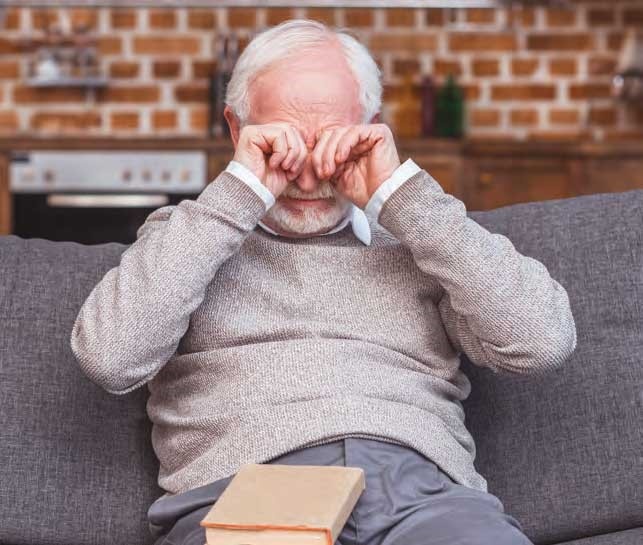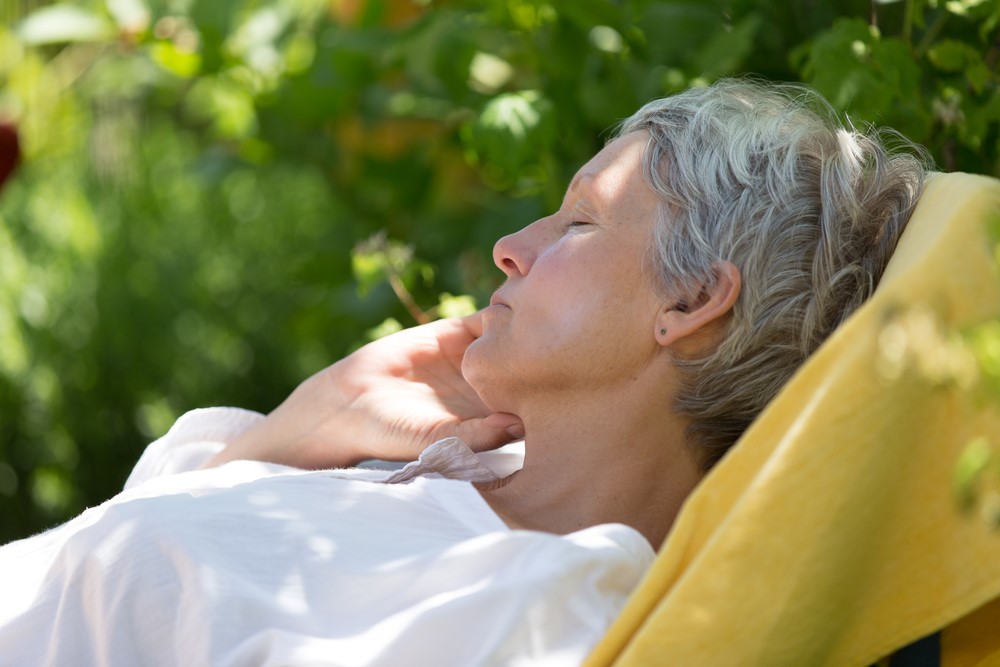
As you grow older, you might realize that you wake up earlier and you get fewer hours of sleep at night, or you tend to fall asleep during the day. This is normal changes that will happen in your sleeping patterns. However, waking up in the morning feeling tired, getting disturbed sleep, and other insomnia-related symptoms isn’t a good sign. Children and adolescents should sleep more hours than adults, while older adults require 7-9 hours of sleep just like younger adults. However, not many older adults get the sleep they need.
Many of them get less deep sleep and wake up frequently during the night. The same way sleep was important to you for your physical and emotional well-being when you were younger, it’s still important to allow your body to repair itself, improve your concentration and memory, and boost your immune system which helps to stop the infection.
Although sleep varies from person to person, on average a healthy adult should sleep 7-9 hours every night, but that doesn’t matter if in the morning you wake to feel tired and groggy. You wake up more frequently which causes fragmented sleep and a lack of deep sleep which leads to sleeping problems like insomnia.
Factors that cause sleeping problems when you’re older
As you grow older, there is a reduction in your body’s ability to produce growth hormones which affect your ability to achieve deep sleep. This also causes a reduction in melatonin production which means you will experience more fragmented sleep and you will tend to wake more frequently during the night. These are all normal sleep changes that happen as you grow older, but other factors can contribute to your inability to get good quality sleep.
Health conditions

You may be having a health condition that is interfering with your sleep. As you age you’re more susceptible to developing chronic illnesses like arthritis, diabetes, osteoporosis, heart disease which make it difficult for you to sleep. Some health conditions cause pain, some make you visit the bathroom frequently at night, and others cause anxiety, while some make breathing difficult interfering with your deep sleep. Talking to your doctor to help solve or manage these health issues can go a long way in improving the quality of your sleep.
Medication
As you age, you tend to take more drugs than a younger person and combined with their side effects, it can affect your quality of sleep. You can ask your doctor to change the medication to an alternative that won’t hamper your sleep or adjust the dosage and when you should take it.
Lifestyle changes

As you grow older, you go through major transitions in your life which changes your daily routine and affects your sleep. You can improve the quality and length of your sleep if you nap less and increase the time you spend outdoors and exercising. Going outside in the morning for at least 2 hours to bask in the sun will increase your body’s production of melatonin which will help regulate your sleep cycle. Avoid napping for more than 20 minutes during the day so that you don’t interfere with your sleep at night. Also cut back on alcohol, nicotine, and caffeine.
Hormones
As you age, your body produces less of melatonin and the growth hormone which are the two most important sleep hormones. Melatonin controls your sleeping cycle so when your body produces less, you may have trouble sleeping and you tend to sleep early and wake up early. The growth hormone helps you get deep sleep and as you age your body produces less which makes deep sleep evasive. When women reach menopause, their bodies go through a lot of hormonal changes that interfere with sleep.
Retirement
You will have a lot more free time on your hands and you can become less active during the day. This can lead to an irregular sleep-wake schedule. The best thing is to keep your body and mind active. You can learn a new skill, volunteer, go to the gym, and spend time with family and friends.
Some sleeping habits to improve your sleep
The good news is you can improve your sleep if you can determine what’s causing it and make some changes.
Keep a regular bedtime routine

Be consistent with the time you go to bed and wake up every day, even on weekends. Come up with some soothing bedtime rituals like listening to relaxing music, taking a bath, deep breathing, or meditation to help prepare your body and mind for bed.
Encourage better sleep at night
There are many ways you can encourage your body and mind to fall asleep. You can first start with getting a comfortable and firm mattress like a Saatva mattress that offers support and comfort. Then remove all electronic devices from your bedroom, make sure your bedroom is void of any noise, the temperatures are lower than usual, and it’s dark. Also, avoid using your bed for work or watch TV so that your brain can associate your bedroom with sleeping.
Exercise regularly
Exercises, especially aerobics help your body to release chemicals and promote better sleep. If you have issues with your mobility, other activities can help you prepare your body and mind for better sleep. Swimming or water exercises help you to build fitness and are good for sore or weak muscles and joints. You can take dancing lessons which are also a good way of expanding your social network. Golfing isn’t a vigorous activity, and you’re exercising as you walk and spending time with friends improves your mood.
Reduce mental stress

Anxiety and stress can build up during the day which can make it difficult for you to sleep. You can read your favourite book, listen to soothing music, get a massage, or use some relaxing techniques to help you fall asleep.
Final thoughts
If you’re sleeping fewer hours than you were when younger, but you’re energetic ad feel well-rested the next day, it might be because you just need less sleep now. Everyone’s sleeping needs are different. However, if you don’t get enough sleep and it affects your daily activities, it’s important that you find out what’s causing it so that you can remedy the situation to get better rest.
